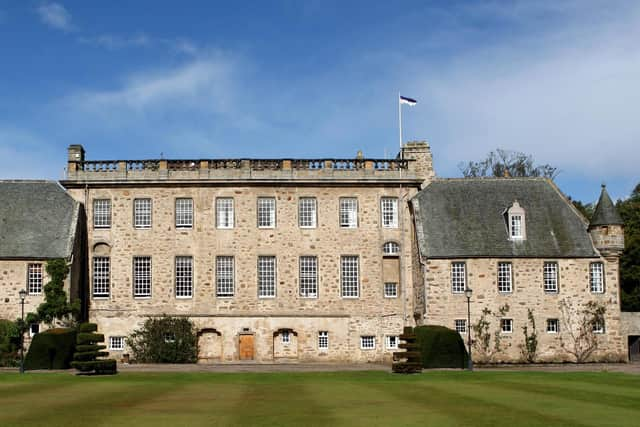Gordon School: Abuse inquiry hears pupils suffered at the hands of staff and fellow boarders
Principal Lisa Kerr spoke of her shock after learning that some ex-pupils had been sexually and physically abused.
She said there had been cases of severe bullying in the 1970s and 1980s.
Advertisement
Hide AdAdvertisement
Hide AdBut she denied that action had not been taken in a bid to protect the school's reputation and financial position.


She told the inquiry that in the 1970s and 1980s there was "a completely unacceptable view that these were just things that happen."
Ms Kerr said that she believes the trust and autonomy of house masters within the boarding schools in the 1960s and 70s was "astonishing and unacceptable" by today's standards.
Andrew Brown QC, senior counsel to the inquiry, asked Ms Kerr about the oversight of housemasters within the boarding school, which was attended by the Duke of Edinburgh, Prince Charles and his royal siblings.
He said: "Looking at the historical approach to schooling, there was a greater assumption that these systems would work, in terms of oversight.


"Oversight would be present in terms of a house master, who had a great deal of responsibility in running for example, discipline."
Ms Kerr said: "I think the level of autonomy that was granted to the house masters, in that era, is at a level that these days, we'd find astonishing and completely unacceptable.
"And it's not hard to draw a line between that and, particularly, the peer-on-peer bullying that some students experienced."
Advertisement
Hide AdAdvertisement
Hide AdMr Brown said: "It is clear that the way individual houses were run impacted [on] the degree of reported abuse or abuse discovered looking through the records. Some weren't managed well."
Ms Kerr agreed, saying: "There are - to be candid - there are individual incidents, some of them particularly serious, but there is a period of particular concern where some houses were clearly not well run and if that was known about, nothing appropriate was done about it."
Mr Brown said: "Does the school accept that that sort of set-up can allow a code of silence, where things are kept inhouse?"
Ms Kerr said: "I've reflected a great deal on why that culture might have existed. It wasn't a universal experience. There was one house where there were not significant issues. I think there were a couple of possibilities for this. That amount of trust and autonomy went wrong - it went too far.
"The second is that it was during a period of time where some people were of the - completely unacceptable view - that these things just happened. Staff moving from other schools, or even some pupils, coming from a culture where these things just happened."
Mr Brown noted that the school had found 11 incidents of alleged abuse of children involving staff and 82 cases of peer-to-peer abuse .
Ms Kerr there was “a very conscious decision to be proactive” when the claims first emerged.
She added: "We have set up an alumni response team who are specifically trained to speak to survivors of abuse. Switchboard operators are trained on how to hear survivors.
Advertisement
Hide AdAdvertisement
Hide Ad"I continue to correspond directly with a number of survivors. I feel honoured that they trust us with that."